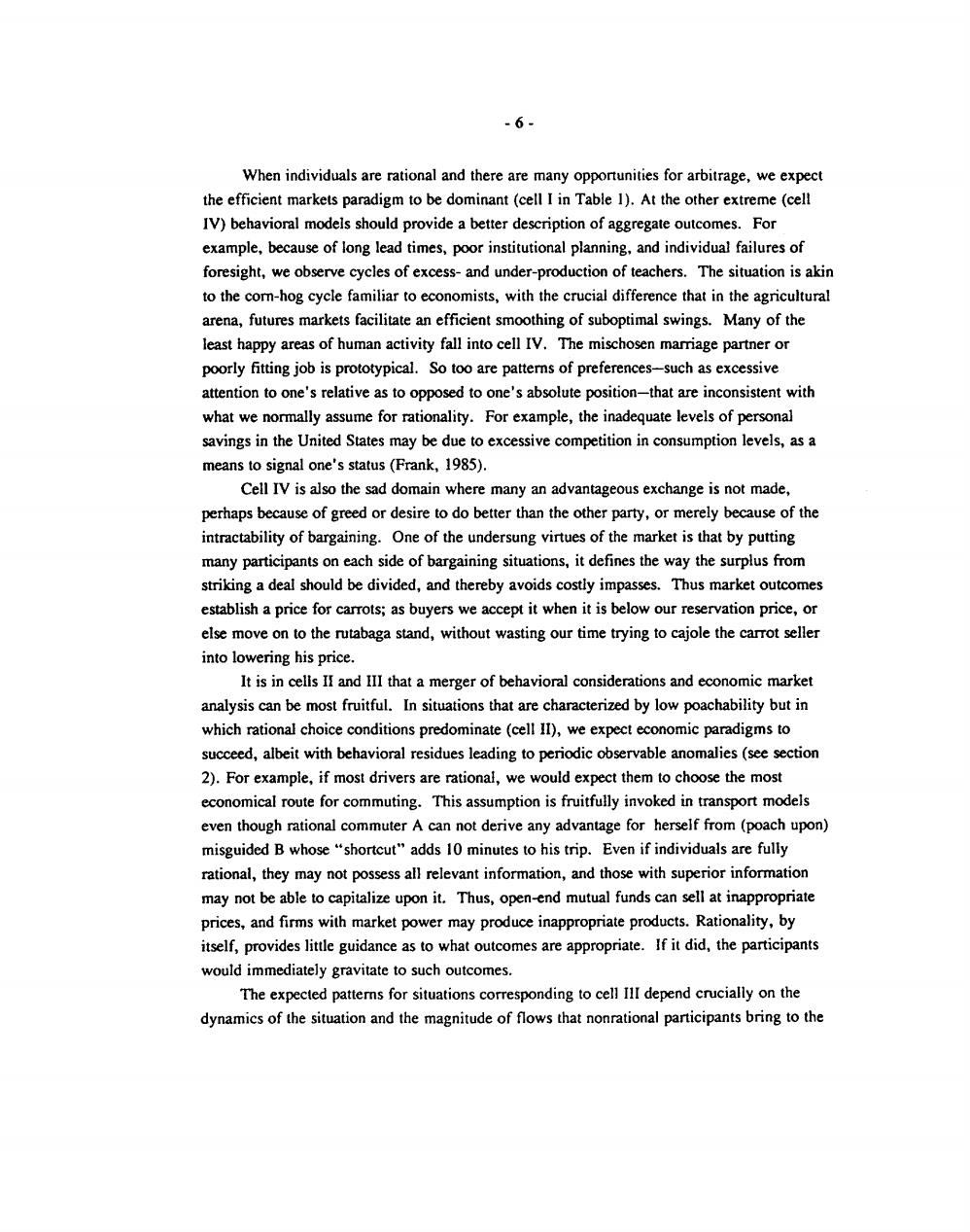正在加载图片...

-6- When individuals are rational and there are many opportunities for arbitrage,we expect the efficient markets paradigm to be dominant(cell I in Table 1).At the other extreme(cell IV)behavioral models should provide a better description of aggregate outcomes.For example,because of long lead times,poor institutional planning,and individual failures of foresight,we observe cycles of excess-and under-production of teachers.The situation is akin to the corn-hog cycle familiar to economists,with the crucial difference that in the agricultural arena,futures markets facilitate an efficient smoothing of suboptimal swings.Many of the least happy areas of human activity fall into cell IV.The mischosen marriage partner or poorly fitting job is prototypical.So too are patterns of preferences-such as excessive attention to one's relative as to opposed to one's absolute position-that are inconsistent with what we normally assume for rationality.For example,the inadequate levels of personal savings in the United States may be due to excessive competition in consumption levels,as a means to signal one's status(Frank,1985). Cell IV is also the sad domain where many an advantageous exchange is not made, perhaps because of greed or desire to do better than the other party,or merely because of the intractability of bargaining.One of the undersung virtues of the market is that by putting many participants on each side of bargaining situations,it defines the way the surplus from striking a deal should be divided,and thereby avoids costly impasses.Thus market outcomes establish a price for carrots;as buyers we accept it when it is below our reservation price,or else move on to the rutabaga stand,without wasting our time trying to cajole the carrot seller into lowering his price. It is in cells II and III that a merger of behavioral considerations and economic market analysis can be most fruitful.In situations that are characterized by low poachability but in which rational choice conditions predominate (cell II),we expect economic paradigms to succeed,albeit with behavioral residues leading to periodic observable anomalies(see section 2).For example,if most drivers are rational,we would expect them to choose the most economical route for commuting.This assumption is fruitfully invoked in transport models even though rational commuter A can not derive any advantage for herself from(poach upon) misguided B whose "shortcut"adds 10 minutes to his trip.Even if individuals are fully rational,they may not possess all relevant information,and those with superior information may not be able to capitalize upon it.Thus,open-end mutual funds can sell at inappropriate prices,and firms with market power may produce inappropriate products.Rationality,by itself,provides little guidance as to what outcomes are appropriate.If it did,the participants would immediately gravitate to such outcomes. The expected patters for situations corresponding to cell IlI depend crucially on the dynamics of the situation and the magnitude of flows that nonrational participants bring to the